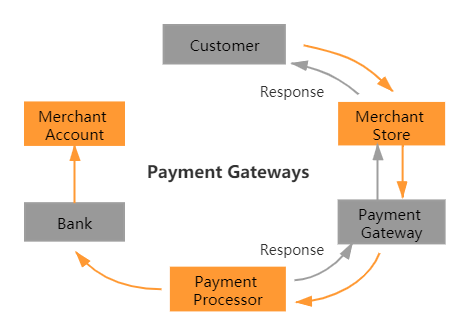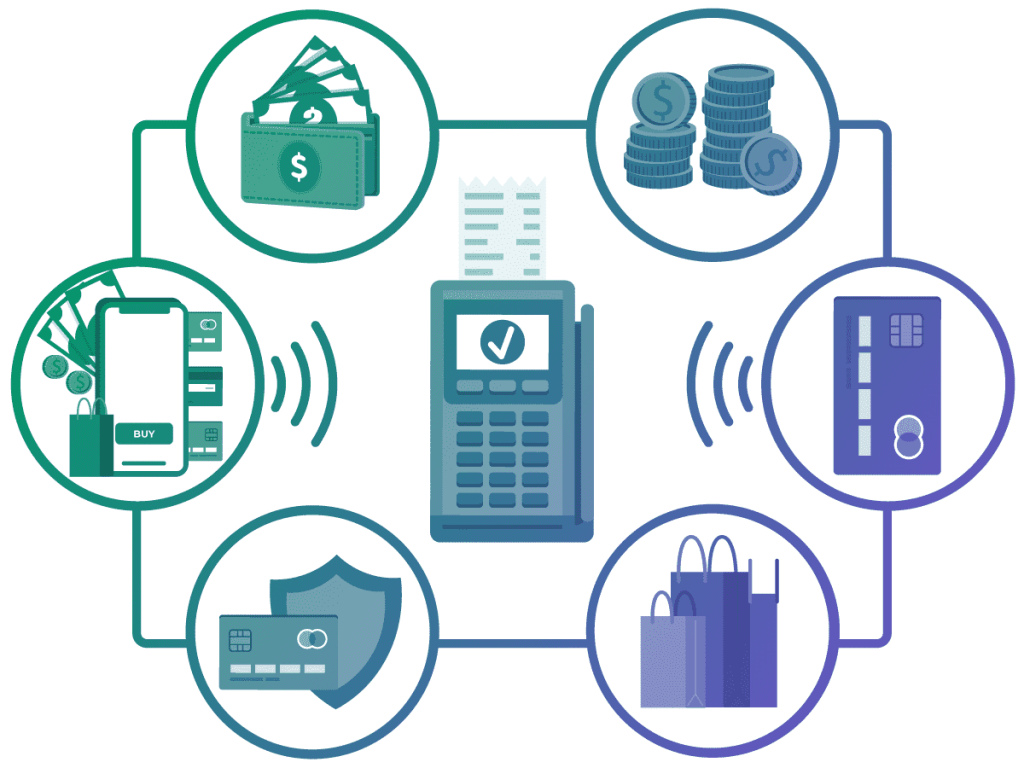AUTHOR : BABLI
DATE: 3/11/2023
The digital economy is thriving, and online payment systems[1] have become an integral part of businesses of all sizes. With the increasing demand for secure and seamless payment solutions, a payment gateway MEAN[2] is emerging as a powerful choice for handling transactions. The MEAN stack, which consists of MongoDB, Express.js, Angular, and Node.js, provides a comprehensive, scalable, and flexible solution for building modern payment gateways. In this article, we will delve into what a payment Gateway[3] MEAN is, its key features, benefits, and how it works.
What does payment gateway mean?
A Payment Gateway MEAN[4] is an online payment solution built using the MEAN stack, which includes four key technologies: MongoDB, Express.js, Angular, and Node.js. These technologies are used together to create a highly efficient, secure, and scalable payment processing[5] system capable of handling online transactions.
- MongoDB: A NoSQL database used to store transaction data securely.
- Express.js: A web application framework used to build the backend of the payment system.
- Angular: A frontend framework used to create dynamic, responsive user interfaces.
- Node.js: A JavaScript runtime environment that enables server-side JavaScript execution.
Key Components of Payment Gateway MEAN

1. MongoDB (Database Layer)
MongoDB serves as the database layer in a payment gateway MEAN. It is a NoSQL database that organizes data in a format similar to JSON documents. This flexibility is essential for handling large volumes of transaction data.
2. Express.js (Backend Framework)
Express.js is a minimal and flexible web application framework for Node.js that handles the routing and processing of payment requests. It acts as the middle layer, ensuring that the payment logic is executed correctly.
3. Angular (Frontend Framework)
Angular is used to create dynamic user interfaces in a payment gateway MEAN system. It allows developers to build rich, interactive front-end applications where customers can securely enter their payment details. Angular’s two-way data binding ensures that the frontend is always in sync with the backend, providing a seamless user experience.
4. Node.js (Runtime Environment)
Node.js is a server-side JavaScript runtime environment that allows the backend of the payment gateway to execute JavaScript code. This makes it ideal for handling high volumes of transactions in real time.
How Does Payment Gateway MEAN Work?

To understand how a payment gateway works, let’s break down the process step by step:
- Customer initiates payment: The customer visits the website or mobile application and selects products or services to purchase.
- Frontend Interaction (Angular): The user enters payment information, such as credit card or digital wallet details, on the frontend built using Angular. Angular forms ensure that the data is entered correctly and securely.
- Backend Processing (Node.js and Express.js): The payment details are sent to the backend, where Node.js and Express.js handle the transaction. Express.js verifies the data, processes the request, and communicates with external payment gateways or APIs for authorization.
- Transaction Authorization: The backend interacts with the payment processor’s API (e.g., Stripe, PayPal) to authorize the transaction. The payment processor checks the customer’s bank or payment provider for available funds and returns a success or failure response.
- Data Storage (MongoDB): After the transaction is completed, MongoDB stores the transaction details, such as the payment status, amount, and customer information, in a secure manner for future reference or audits.
Benefits of Using Payment Gateway MEAN
1. Scalability
A payment gateway MEAN is highly scalable. With MongoDB’s NoSQL architecture and Node.js’s ability to handle multiple requests simultaneously, businesses can scale their payment system as their transaction volume grows.
2. Security
The payment gateway MEAN ensures robust security through features like encrypted payment data transmission, tokenization of sensitive information, and compliance with industry standards like PCI-DSS. By using secure APIs and data storage solutions, the MEAN stack mitigates risks associated with online payment systems.
3. Real-Time Processing
One of the standout features of a payment gateway MEAN is its ability to process transactions in real time. The non-blocking nature of Node.js ensures that the system can handle thousands of transactions simultaneously without delays, providing a seamless user experience for customers.
4. Cost-Effective Solution
Since the MEAN stack is open-source, businesses can significantly reduce the cost of developing a custom payment gateway. The availability of free libraries, frameworks, and tools reduces the overall development cost, making it an affordable option for companies of all sizes.
5. Customizability
A payment gateway MEAN allows businesses to fully customize the payment experience. From user interfaces built with Angular to backend logic powered by Node.js and Express.js, the entire system can be tailored to meet the specific needs of the business, including integrating with third-party payment processors or supporting multiple currencies.
6. Cross-Platform Compatibility
With Angular handling the frontend and Node.js supporting both client and server-side logic, a payment gateway MEAN is compatible across different platforms, including desktop and mobile devices. Customers can securely make payments from any device, enhancing the user experience and increasing conversion rates.
Common Use Cases for Payment Gateway MEAN

1. E-Commerce Websites
E-commerce websites are one of the most common use cases for a payment gateway MEAN. These platforms require a secure, scalable, and real-time solution to handle thousands of transactions per day. The MEAN stack provides the flexibility to integrate with different payment processors and offers a responsive and seamless user experience.
2. Subscription Services
Subscription-based services, such as SaaS (Software as a Service) platforms, benefit from the real-time payment processing capabilities of a Payment Gateway MEAN. Recurring payments can be handled efficiently, and businesses can offer a smooth checkout experience for their users.
3. Mobile Apps
Mobile apps that involve financial transactions, such as ride-sharing services or mobile commerce platforms, can leverage the Payment Gateway MEAN for secure, fast, and scalable payment processing. The MEAN stack ensures that payments are processed seamlessly across different devices and platforms.
Conclusion
The Transaction Processor MEAN stack provides a powerful, flexible, and secure solution for businesses looking to process online payments efficiently. By utilizing MongoDB, Express.js, Angular, and Node.js, businesses can create scalable and highly customizable transaction processors that meet their unique needs. With improved transaction speed, enhanced security, and cost-effectiveness, Payment Gateway MEAN offers significant advantages over traditional payment processing systems.
(FAQs)
1. What does a payment gateway MEAN?
A Payment Gateway MEAN is a payment processing solution built using the MEAN stack (MongoDB, Express.js, Angular, and Node.js), providing a secure, scalable, and customizable platform for handling online transactions.
2. How does Payment Gateway MEAN handle security?
Transaction Processor MEAN ensures security through encryption protocols, tokenization, and compliance with industry standards like PCI-DSS.
3. Can Payment Gateway MEAN handle international payments?
Yes, Transaction Processor MEAN can be configured to support multiple currencies and integrate with international payment processors, allowing businesses to accept payments from customers worldwide.
4. Is Payment Gateway MEAN scalable?
Yes, Transaction Processor MEAN is highly scalable due to MongoDB’s flexible database structure and Node.js’s ability to handle concurrent requests, making it suitable for businesses of all sizes.
5. Can I customize Payment Gateway MEAN?
Yes, the MEAN stack provides full customizability for both the frontend (with Angular) and backend (with Node.js and Express.js), allowing businesses to tailor the payment system to their needs.





